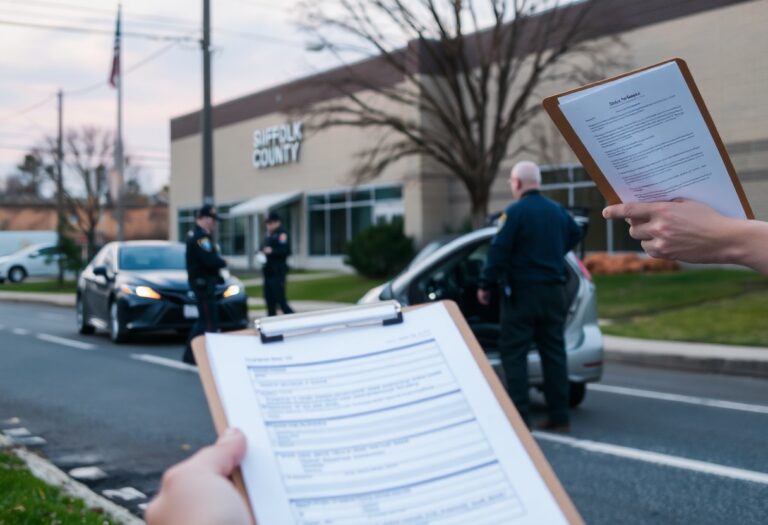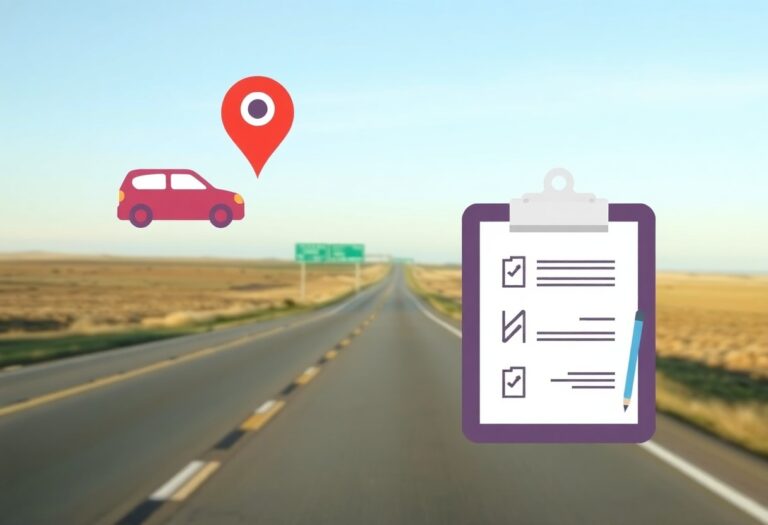County roads can be busy, and car accidents are unfortunately commonplace in Clark County, Arkansas. If you find yourself in need of a car accident report, it’s important to know the right steps to take. This guide will provide you with clear and concise information on how to locate and obtain your report efficiently, ensuring you have all the necessary details at your fingertips. By following these steps, you can navigate the process with confidence and ease.
The Legal Framework for Accessing Accident Reports
Accessing car accident reports in Clark County is governed by specific legal guidelines which ensure public transparency while also protecting sensitive information. These laws dictate how, when, and to whom these reports can be released, balancing the need for public access with privacy considerations. Understanding this framework not only helps you navigate the process more smoothly but also ensures you know your rights regarding report access.
Key Laws Governing Car Accident Reports in Arkansas
In Arkansas, the Freedom of Information Act (FOIA) serves as the primary legislation guiding access to accident reports. Under this law, most accident reports are considered public records, allowing you to request them from the appropriate law enforcement agency. However, some information may be redacted to protect privacy, especially in cases involving minors or ongoing investigations, ensuring that while transparency is upheld, personal security remains a priority.
The Role of Public Records in Accident Reporting
Public records play a significant role in the accident reporting process, allowing you to obtain information about collision incidents that occur within Clark County. These records, including accident reports, are maintained by relevant law enforcement agencies and are important for ensuring accountability and transparency in traffic incidents. By making these documents available, state laws empower you to understand the details surrounding accidents and facilitate informed decisions regarding claims or legal action.
Utilizing public records for accident reporting not only aids personal understanding but also contributes to broader traffic safety analysis. For instance, by reviewing accident reports, you can identify trends in specific areas, helping local authorities focus on road safety improvements. Such insights from accident reports may also assist insurance companies in properly evaluating claims, fostering a culture of responsibility among drivers. Overall, access to these reports is vital for both individual circumstances and community-wide safety measures.
Where to Locate Car Accident Reports in Clark County
In Clark County, obtaining car accident reports involves visiting specific local government offices or utilizing online platforms. Reports are usually filed by law enforcement, and these agencies keep the records accessible for those involved in the accident and their legal representatives. To streamline your search, you can head directly to the sheriff’s office or police department involved in the incident.
Essential Local Government Offices and Their Roles
The Clark County Sheriff’s Office and local police departments are your primary points of contact for car accident reports. The sheriff’s office maintains records for accidents under their jurisdiction, while city police departments handle reports within city limits. Both offices facilitate public access to these records, allowing victims and involved parties to obtain necessary documentation for insurance claims or legal matters.
Online Platforms: Making Use of Digital Resources
In addition to visiting government offices, you can also access car accident reports through available online resources. Various websites, including those of the sheriff’s office and police department, often provide downloadable forms or links to request reports electronically. You may also find third-party services that allow you to search for accident reports by entering specific details like date, location, and involved parties, making it easier to obtain the information you need without an in-person visit.
For example, the Clark County Sheriff’s Office has a user-friendly website where you can request reports by filling out a simple form. This digital resource saves you time and ensures you can access your report from the comfort of your home. Additionally, numerous apps that aggregate public records can simplify finding relevant accident reports, often allowing you to track down imperative documents in just a few clicks.
The Step-by-Step Process to Requesting Your Accident Report
Requesting your accident report in Clark County can be a straightforward process if you follow the right steps. Start by visiting the appropriate local government office. Next, gather the necessary information, fill out the request form, and submit it along with your payment. You can often choose between an in-person visit, a mail-in request, or an online submission, depending on the agency’s capabilities. This section breaks down each step in detail to ensure you efficiently navigate through the process.
| Step | Description |
|---|---|
| 1 | Visit the local law enforcement agency or the DMV. |
| 2 | Complete the required request form. |
| 3 | Provide necessary identification and accident details. |
| 4 | Submit your request, either in person, via mail, or online. |
| 5 | Pay any applicable fees for the report. |
Required Information You’ll Need to Provide
To successfully obtain your accident report, you’ll need to furnish specific details such as your name, contact information, the date of the accident, and the location. Additionally, providing a case number, if available, can expedite your request. Always ensure that the information matches with the records to avoid any delays.
Common Pitfalls and How to Avoid Them
Be mindful of common mistakes that can lead to delays in receiving your accident report. Submitting incomplete forms or incorrect information can stall the process. Ensure that you double-check all your entries before submission.
One significant pitfall involves neglecting to specify the type of report you need. Each report might have different filing requirements, and failing to choose correctly can result in rejection. Additionally, some individuals overlook the required fees that accompany their requests. Always verify the total amount due and the accepted payment methods before proceeding. Thorough preparation—including accurate details and confirming payment options—will save time and frustration during the request process.
Navigating Fees and Timelines: What to Expect
Acquiring your car accident report in Clark County comes with certain fees and anticipated timelines. Knowing these intricacies will help streamline your experience, ensuring that you’re prepared for any costs and how long you might wait for your report to be processed.
Understanding Cost Structures for Report Access
Accessing your car accident report typically involves a nominal fee, which can range from $10 to $25 depending on the specific department handling the report. Payment methods may vary, so check ahead whether cash or credit card is accepted to avoid any delays in obtaining your document.
Typical Processing Times: When to Expect Your Report
Processing times for car accident reports can vary broadly, often taking anywhere from five to ten business days. External factors such as the volume of requests or specific agency protocols can influence this timeframe, so it’s wise to plan ahead.
In many cases, if the report is required urgently, you might be able to request expedited processing for an additional fee. This typically reduces waiting times to around two to three business days. However, if there’s an unusually high demand or specific investigative protocols at play, longer waits may still occur. Keep track of when you submit your request and follow up proactively if you haven’t received a response within the expected timeframe.
Insights from Local Law Enforcement: Best Practices for Retrieval
Local law enforcement emphasizes the necessity of being prepared when retrieving your car accident report. Gather relevant information including the date, time, and location of the accident, as well as involved parties’ names. Deputies recommend being polite and patient, as officers often handle multiple requests. You should expect typical processing times to vary, but diligent follow-up can help speed up retrieval. Establishing a positive rapport with officers can also facilitate a smoother experience.
Recommendations from Clark County Authorities
Clark County authorities advise that you check their official website for the most current procedures and requirements related to accident report retrieval. Always have a valid ID on hand and be ready to fill out any necessary forms accurately. Furthermore, using online resources for preliminary checks can save you time and ensure that you’re equipped with all the information needed before visiting in person.
How to Work Effectively with Police Departments
Working effectively with police departments often starts with clear communication. Be concise when explaining your situation and know your rights regarding obtaining the report. Following up respectfully demonstrates your seriousness and can increase the likelihood of timely assistance. Furthermore, understanding peak hours for report requests can help you avoid long wait times, allowing for a quicker retrieval process.
If you’re looking to expedite interactions, consider establishing a routine for following up with the department, such as a weekly check-in via phone or email. Officers appreciate updates on case statuses and can provide insights into when reports may be available. Building familiarity with specific officers or department staff may lead to a more personalized approach to your inquiries, ultimately resulting in a more efficient retrieval process for your car accident report.
Summing up
With this in mind, navigating the process of obtaining a car accident report in Clark County, Arkansas, can be straightforward if you follow the proper steps. Start by identifying where the accident occurred and contacting the appropriate local law enforcement agency. Ensure you have all relevant information, such as incident details, involved parties, and case numbers. By doing this, you significantly simplify your access to the report you need, aiding in any further legal or insurance proceedings.













